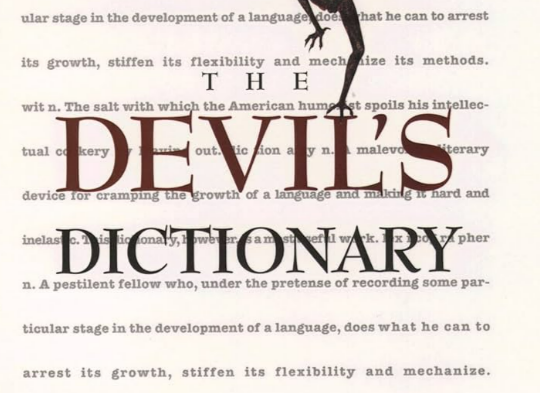Chapter F
byChapter F begins with Bierce’s playful critique of the mythical Fairy, portrayed not as a symbol of innocence but as a mischievous relic of outdated belief systems. He recalls how laws once protected these fictional beings, illustrating the absurd lengths to which societies have gone to defend the imaginary. By invoking their reported appearances in the 19th century, Bierce highlights the human tendency to embrace superstition, even when faced with advancing reason. His depiction draws attention to how folklore persists, not because it’s true, but because it offers convenient answers to life’s mysteries. The definition blends whimsy with irony, revealing how belief often outlives credibility.
Faith is redefined as belief without proof, framed with a tone that straddles awe and ridicule. For Bierce, faith represents the surrender of logic in favor of comfort, where people embrace certainty in the absence of evidence. He doesn’t criticize belief outright, but rather the ease with which humans accept it unquestioned. Similarly, Famous is stripped of its glamour and described as a state often filled with misery. Bierce points out that fame invites scrutiny, pressure, and often disillusionment. The very thing people chase turns out to be a burden, not a blessing, reflecting the human flaw of desiring recognition without understanding its cost.
Fashion is presented as a tyrant people both mock and follow, a contradiction that reveals society’s obsession with appearance over substance. Though often dismissed as shallow, fashion’s influence is powerful and pervasive, shaping identities and dividing classes. Bierce’s definition exposes the hypocrisy of ridiculing what one secretly obeys. The word Feast, on the other hand, is framed as a religious celebration hijacked by overindulgence. He sees the gathering not as a sacred moment, but as an excuse for gluttony, turning spirituality into spectacle. This commentary speaks to the human tendency to blend devotion with excess, often losing sight of original intent.
In the realm of relationships, Female is handled with a sharp, cynical edge. Bierce suggests that society defines women not by their individuality but by their contrast to men, revealing a skewed and simplistic view of gender. His tone critiques the reduction of women to roles or symbols, often shaped by male perceptions. Friendship is given an equally skeptical treatment, described as a bond that endures only under favorable conditions. When hardship arises, true loyalty is tested—and often fails. Bierce’s view challenges the ideal of unconditional companionship, suggesting instead that friendship is as fragile as the situations that form it.
Moving toward mortality, Funeral is defined not as a tribute to the dead but as an enterprise benefiting the living—specifically undertakers. The event becomes more commercial than ceremonial, revealing how even grief is commodified. Bierce strips away the sentimentality of funerals to expose the transactional nature of mourning. What is marketed as a gesture of honor may be little more than performance. His perspective forces readers to confront the social rituals that mask financial motives.
Other terms such as Forgiveness, Freedom, and Future deepen his critique. Forgiveness is not an act of grace but a self-serving relief for the one who grants it, often delayed until no cost remains. Freedom is ironically portrayed as a gift that comes with strings—offered by those in power to those they still wish to control. Bierce sees liberty not as an ideal, but as a negotiation. As for Future, he regards it as an illusion that distracts from present inaction. It’s where hopes are stored and plans are abandoned—forever deferred and rarely realized.
The chapter closes with Fool, perhaps Bierce’s most layered definition. He defines the fool not by a lack of intelligence, but by a lack of caution—a person who says or does what others merely think. This figure becomes essential, not disposable, because he exposes the truths others are too prudent to reveal. Bierce presents foolishness as a paradoxical kind of wisdom, showing how society both punishes and needs its outliers. The fool is feared not for his ignorance, but for his honesty.
Throughout this chapter, Bierce deconstructs the familiar with humor that is never hollow. His words ask the reader to confront the real meaning behind rituals, roles, and ambitions. Each definition pulls back a curtain, revealing contradiction, irony, or quiet truth beneath what is commonly accepted. Through his sardonic perspective, Bierce creates not just a dictionary, but a social critique disguised as language. His entries on “F” are not merely clever—they are precise instruments designed to challenge comfort and ignite thought.

